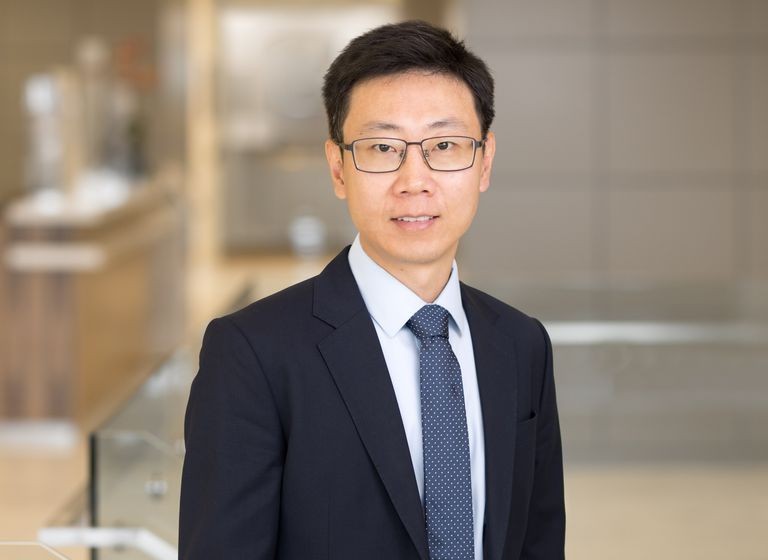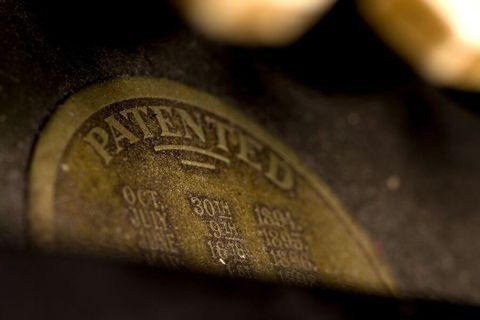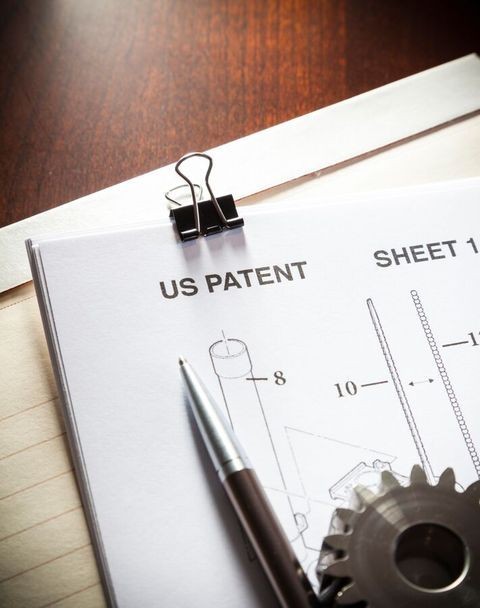Hefeng Su
Overview
Hefeng (Hervey) Su is a counsel in Crowell & Moring’s Washington, D.C. office, where he splits his time between the Patent & ITC Litigation and Patent Prosecution groups. Hefeng spares no effort to achieve clients’ objectives in his patent prosecution and litigation practice. With an extensive engineering background, Hefeng is skilled at communicating with clients effectively in their industry languages. His experienced legal practices enable him to step into the shoes of clients and align his services with clients’ business strategy.
Career & Education
- Tongji University, B.S., with honors, communication engineering, 2001
- Shanghai Jiao Tong University, M.S., computer science, 2004
- The George Washington University Law School, J.D., 2018
- District of Columbia
- U.S. Patent and Trademark Office (USPTO) Limited Recognition*
- Mandarin
Hefeng's Insights
Client Alert | 1 min read | 10.02.24
USPTO to Terminate the After Final Consideration Pilot Program 2.0 for Patent Prosecution
Traditionally, a response to a Final Office Action (“FOA”) issued by the United States Patent and Trademark Office (“USPTO”) often involves filing a Request for Continued Examination (“RCE”) in order for the Examiner to consider further claim amendments. In 2013, the USPTO launched the After Final Consideration Pilot program 2.0 (“AFCP 2.0”) as an alternative. The AFCP 2.0 program allows patent applicants to request consideration of an amendment after a FOA without additional fees and grants examiners extra time to review the after-final amendment. This provides applicants the chance to file after-final amendments without incurring the significant fees associated with an RCE. The AFCP 2.0 program also provides an opportunity for applicants to have an interview with the Examiner and this increased communication often led to efficient resolution of prosecution.
Firm News | 6 min read | 01.02.24
Crowell & Moring Elects Seven New Partners, Promotes Four to Senior Counsel, and 26 to Counsel
Client Alert | 3 min read | 03.06.23
In Parallel Proceedings, Compelling Merits Matter Last in Fintiv Analysis
Publication | 02.08.23
E-Signing Patent Documents Might Sometimes Be the Wrong Approach
Representative Matters
- Certain Oil-Vaping Cartridges, Components Thereof, And Products Containing the Same; Inv. No. 337-TA-1286. Representing Shenzhen Smoore Technology Limited in the Section 337 Proceeding.
- Certain Portable Battery Jump Starters & Components Thereof; Inv. No. 337-TA-1256. Representing Schumacher Electric Corp. and Schumacher Power Technology Ltd. in the Section 337 Proceeding.
- Certain Balanced Armature Devices, Products Containing Same, and Components Thereof; 337-TA-1186. Representing Bellsing Respondents in the Section 337 Proceeding.
- Certain Pickup Truck Folding Bed Cover Systems and Components Thereof; Inv. 337-TA-1143. Representing Sunwood Industries Co., Ltd. in the Section 337 Proceeding.
- Certain Semiconductor Devices, Integrated Circuits, and Consumer Products Containing the Same; Inv. No. 337-TA-1149. Representing Guangdong OPPO Mobile Telecommunications Co. Ltd. and OnePlus Technology (Shenzhen) Co., Ltd. in the Section 337 Proceeding.
- Photonic Imaging Solutions, Inc. v. Lorex Technology Inc., et al (D. Del 2018). Representing Lorex Technology Inc. in the patent infringement action.
- Micron Technology, Inc. v. United Microelectronics Corporation, et al (N.C. Cal 2017). Representing Fujian Jinhua Integrated Circuit Co., Ltd. in the antitrust action.
Hefeng's Insights
Client Alert | 1 min read | 10.02.24
USPTO to Terminate the After Final Consideration Pilot Program 2.0 for Patent Prosecution
Traditionally, a response to a Final Office Action (“FOA”) issued by the United States Patent and Trademark Office (“USPTO”) often involves filing a Request for Continued Examination (“RCE”) in order for the Examiner to consider further claim amendments. In 2013, the USPTO launched the After Final Consideration Pilot program 2.0 (“AFCP 2.0”) as an alternative. The AFCP 2.0 program allows patent applicants to request consideration of an amendment after a FOA without additional fees and grants examiners extra time to review the after-final amendment. This provides applicants the chance to file after-final amendments without incurring the significant fees associated with an RCE. The AFCP 2.0 program also provides an opportunity for applicants to have an interview with the Examiner and this increased communication often led to efficient resolution of prosecution.
Firm News | 6 min read | 01.02.24
Crowell & Moring Elects Seven New Partners, Promotes Four to Senior Counsel, and 26 to Counsel
Client Alert | 3 min read | 03.06.23
In Parallel Proceedings, Compelling Merits Matter Last in Fintiv Analysis
Publication | 02.08.23
E-Signing Patent Documents Might Sometimes Be the Wrong Approach
Insights
Online Customization System for Bus Based on Virtual Reality
|02.01.05
System Simulation Journal (2005 (04)
A Method Implementing Cross-Region Texture Mapping
|01.01.04
Computer Simulation
Hefeng's Insights
Client Alert | 1 min read | 10.02.24
USPTO to Terminate the After Final Consideration Pilot Program 2.0 for Patent Prosecution
Traditionally, a response to a Final Office Action (“FOA”) issued by the United States Patent and Trademark Office (“USPTO”) often involves filing a Request for Continued Examination (“RCE”) in order for the Examiner to consider further claim amendments. In 2013, the USPTO launched the After Final Consideration Pilot program 2.0 (“AFCP 2.0”) as an alternative. The AFCP 2.0 program allows patent applicants to request consideration of an amendment after a FOA without additional fees and grants examiners extra time to review the after-final amendment. This provides applicants the chance to file after-final amendments without incurring the significant fees associated with an RCE. The AFCP 2.0 program also provides an opportunity for applicants to have an interview with the Examiner and this increased communication often led to efficient resolution of prosecution.
Firm News | 6 min read | 01.02.24
Crowell & Moring Elects Seven New Partners, Promotes Four to Senior Counsel, and 26 to Counsel
Client Alert | 3 min read | 03.06.23
In Parallel Proceedings, Compelling Merits Matter Last in Fintiv Analysis
Publication | 02.08.23
E-Signing Patent Documents Might Sometimes Be the Wrong Approach






